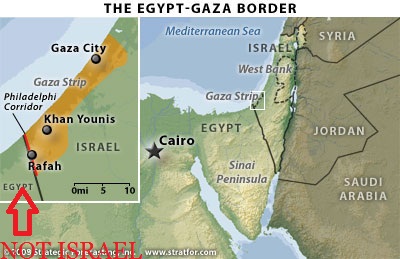There’s nothing at all surprising about an op-ed published at the Independent by their former Jerusalem correspondent Donald Macintyre – at least for anyone even remotely familiar with his views. In the most recent example of Macintyre confusing personal prejudices with journalistic objectivity, he concluded – based merely on the claim of one anonymous source – that Prime Minister David Cameron’s putative pro-Israel policies were the result of Jewish donors to the Tories.
His latest piece, published on Dec. 20, offers a spirited and unqualified defense of the European-funded NGO, Breaking the Silence (BtS) – a group which claims to “expose the Israeli public to the reality of everyday life in the Occupied Territories”.
Though Macintyre frames his defense of the NGO by suggesting that Israelis should be proud that their democracy protects such groups, the emphasis of his op-ed is to refute allegations, by “right-wing critics”, against the group in the context of a dispute in the Knesset between Israel’s president, the prime minister and the opposition leader.
He begins by vouching for BtS’s “credibility'”:
Because of the credibility of those meticulously cross-checked testimonies, and the details of routine abuses of Palestinians in the Occupied Territories which they often throw up, they have made uncomfortable reading for those in power.
However, it’s likely that Macintyre didn’t consult reports by NGO Monitor (NGOM) demonstrating that BtS’s analyses often contain serious omissions, flawed methodology and biased interpretations of soldiers’ testimonies. Further, as an analysis by CAMERA noted, BtS claims represents hearsay in that they “refuse to report the alleged incidents to the proper authorities, and hide behind a cloak of anonymity, withholding their own identities, the identities of other individuals involved, and the specifics that would enable authorities to corroborate their testimonies.”
Macintyre then addresses questions raised over the funding of BtS:
BTS critics are especially enraged that some of their funding comes from abroad, including from European governments either directly or indirectly through organisations such as the New Israel Fund (NIF). Never mind that BTS is totally transparent about funding or that the NIF is an impeccably reputable organisation, whose president Talia Sasson is a former senior state attorney chosen by the then Prime Minister Ariel Sharon to investigate illegal Israeli settlement outposts in the occupied West Bank. Never mind too, that millions of dollars, some of it covert, reaches the Jewish West Bank settlements from the US every year. Or that Israel’s highest circulation newspaper, the free – and staunchly pro-Netanyahu – Israel Hayom, is owned by the right-wing US billionaire and Republican Party donor Sheldon Adelson. Or that the hard-right organisation Im Tirtzu, which has been a particularly harsh critic of BTS, also receives funding from foreign sources – not all of them specified.
Macintyre misses the point entirely. Critics of EU funding of such groups argue that it represents unprecedented foreign interference in the internal debates of a democratic country which already has rigorous oversight mechanisms to guard against military misconduct. As former AP Jerusalem correspondent Matti Friedman asks: would European taxpayers conceivably fund an organization that encourages, say, British or American soldiers to reveal British or US army wrongdoings to the international press?
Mcintyre then addresses the group’s alleged involvement with BDS.
The attacks had started to hit home, fuelled by an attempt to conflate BTS’s aims with those of the Boycott, Divestment and Sanctions campaign for a boycott of Israel (which BTS does not support).
However, the truth is more complicated. NGOM noted, though BtS claims that they don’t work with or support BDS groups, BtS’s co-founder told South African parliamentarians that “he agreed with the intention of the BDS movement but he felt that its approach could compromise the goal.” Additionally, BtS has presented their agenda at events organized by groups supportive of BDS.
Mcintyre then made the following claim:
In heated exchanges in the Knesset, the Labour leader Isaac Herzog rejected a challenge by Netanyahu to issue an outright condemnation of BTS.
Again, this is not entirely truthful. In the exchange in question, Herzog did broadly defend the right of soldiers to “express themselves in the right places” but also acknowledged that “Breaking the Silence has crossed the line in certain situations” and said that he was ‘disgusted’ by some of their opinions.
Mcintyre then writes:
Yuval Diskin the former head of Israel’s domestic intelligence agency Shin Bet, described the NGOs traduced in the video as “a very important part of every democratic regime and an important part of its strength”.
Tellingly, Mcintyre neglected to tell readers that Diskin also was clear that he ‘opposed the group’s activity outside of Israel’, which represents, of course, the bulk of their work.
Mcintyre then cites another ‘defense’ of BtS:
And perhaps most remarkably of all, Amiram Levin – one of Israel’s bravest and most distinguished generals with a formidable war record, a former head of the Israel Defence Force’s Northern Command and of the elite special forces unit Sayeret Matkal – took out, at his own expense, a Haaretz advertisement headlined in Hebrew: “I, too, am Breaking the Silence,” arguing that the military and political establishment should be encouraging the organisation, not silencing it.
Again, though the specific quotes are accurate, Mcintyre left out a few additional words from the advert. Levin also said that “he was opposed to the group’s activity outside of Israel”, and condemned their failure to voice their concerns through proper military and judicial channels.
BtS is not, as the Indy op-ed concludes, designed to “show the moral price paid by soldiers obliged to enforce an occupation”, but, as Matti Friedman argued, “to provide international reporters” such as Donald Mcintyre, “with the lurid examples of Israeli malfeasance that they crave”.





